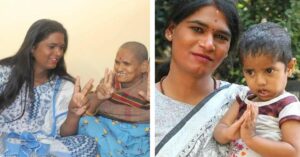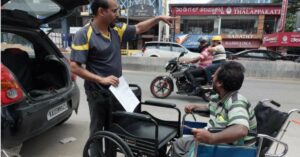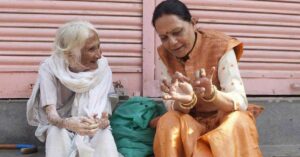This Software Engineer Quit His Job to Help One Tribal Woman. Today He Has Helped 17,000
Vikash Das’s social journey started when he saw a tribal woman being insulted. Fast forward to now, that woman is a successful entrepreneur and has employed 26 other women.
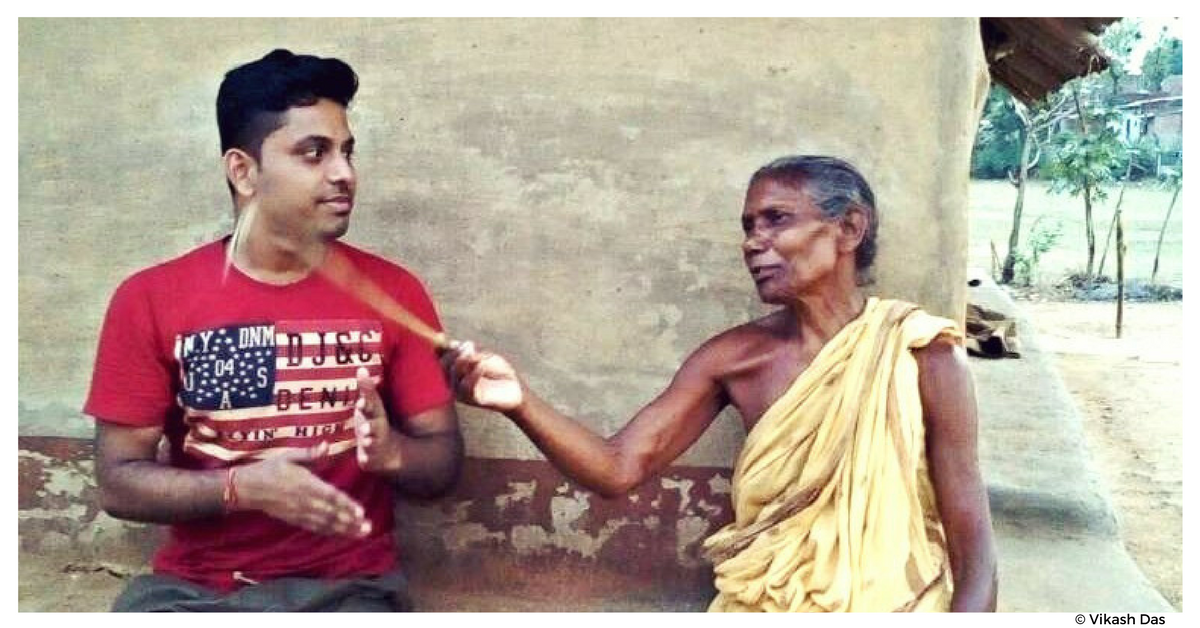
It was October 2013 when Vikash Das, an IT security consultant with IBM, visited his hometown in Balasore, Odisha, to celebrate Durga Puja. Puja celebrations at the Das residence had been a centre of attraction for the residents of Balasore and the small hamlets around. This time, too, many people gathered around their house to have a look at the divine goddess.
Among these people was Sukima Majhi, an old tribal woman dressed in rags. As soon as the woman entered the premises of the puja, the priest got furious and family members dragged her out of the area.
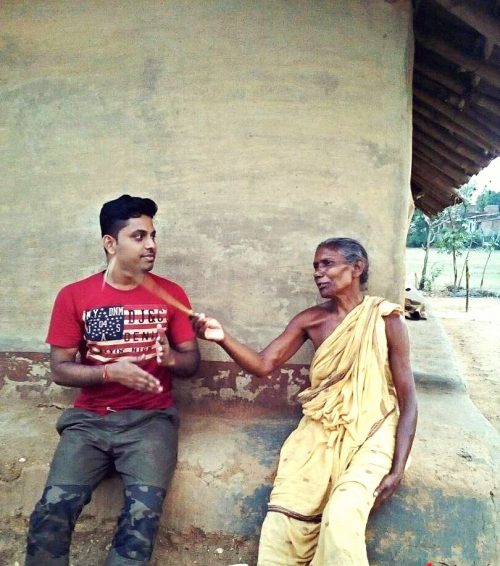
Though Vikash’s parents were known to be liberal, he had always been asked to stay away from the tribal community that lived around his town by his extended family members. As a child, he was taught the concept of ‘Vasudhaiva Kutumbakam – the world is one family’ by his parents, and on the other hand he was seeing that the tribal community being discriminated against right in front of his eyes.
“This was an epitome of hypocrisy for me. We were offering our prayers to a goddess and at the same time we were insulting a woman just because she belonged to a particular caste,” says Vikash.
Vikash decided to get to the root cause of this discrimination. With the passage of time, he realised that the tribal folks were discriminated against because they were poor, illiterate and malnourished.He observed that in the tribal community it was the women who shouldered a lot of the work to support the family. Thus he decided to empower these women to uplift the community as a whole.
The next thing he did was visit the remote tribal hamlet of Koibania where he stayed with the residents for over two months to understand their problems. He also approached his friends from the corporate sector to join him and soon got a core team of seven people who accompanied him to these villages.
The team then involved the tribals to come up with sustainable business models and followed their ideas.
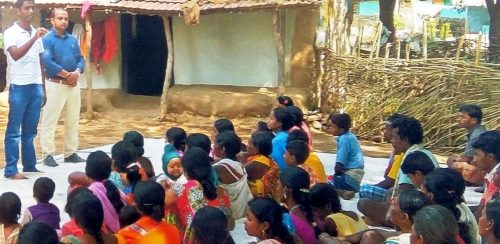
Initially, it was difficult as they wanted to empower the women and the men would not allow the women to come out and speak to strangers. Moreover, following years of exploitation, they were wary to trust an outsider.
“I did not want to have another NGO that provides them help or imposes their business plans on them. This way, they don’t have the ownership to their own business. So we asked them what they wanted,” says Vikash.
In April 2014, Vikash quit his job and launched his social enterprise Vat Vrikshya using all his savings.
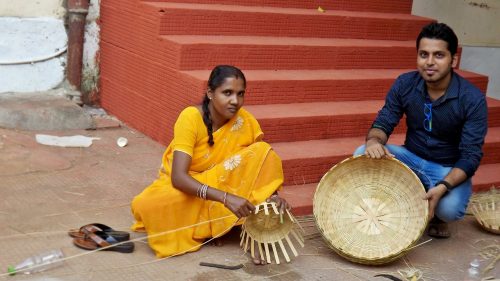
As the team did not had an office initially, they would sit under a banyan tree to discuss things with the tribal folk and thus came up the name ‘Vat Vrikshya,’ which in Sanskrit is a banyan tree and is considered holy by the tribals.
The team started working in a small tribal hamlet, which had a population of just 100-200 people. They started working with the women on the business they were already into like handicrafts, handloom, organic crops, herbal and cosmetic products, etc. by giving them a seed funding of Rs 3,000. The team realised that these women were already independent and hardworking.However,they did not have anyone to market their product. Thus the first goal of Vat Vrikshya was to cut out the agents and middlemen and get the artisans the right value for their products.
The tribal women were then connected to women entrepreneurs from other villages.This team was then given skill development training by Vat Vrikshya. The marketing of the products were also done by going door to door as well as to the local markets by the Vat Vrikshya team.
What started in just one village is now a network spanning four states –Odisha, West Bengal, Jharkhand and Chhattisgarh– helping around 17,000 tribal women by 72 team members of Vat Vrikshya.
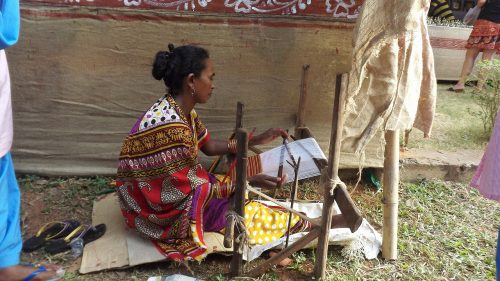
“We give preference to educated tribal youth in our team. It is therefore easier to communicate with them and understand their needs,” says Vikash.
The products are also marketed in a unique way of storytelling. If you buy a Vat Vrikshya product made by these tribal women, you will also get a pamphlet describing the story behind the making of the product.
Today, Sukima Majhi, the same woman dragged out of Vikash’s house,has become a business woman in the true sense.
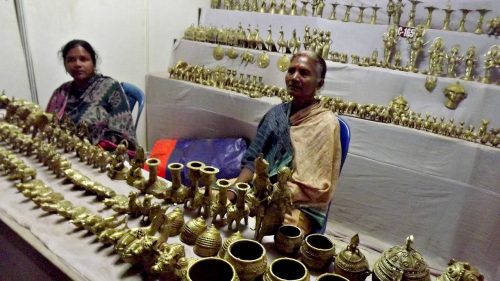
Earlier, she had no money to meet her expenses. She was abandoned by her family and ruthlessly exploited by a moneylender. While she was good at making Bamboo products,middlemen were not paying her enough money for the hard work she was putting in. Vat Vrikshya provided her with necessary skills and market access and she is now living a comfortable life.
Rani is another young woman who benefited from Vat Vrikshya, whose treatment in her village has been equally, if not more, appalling. Rani was thrown out of her village because she was suspected of practicing sorcery and witchcraft. She was left to beg on streets of Baripada when Vat Vrikshya found her. Her talent lay in weaving of stoles and scarfs, but little did she know that her hand woven products would one day find place in the wardrobes of many Europeans. She now lives a life of dignity and says, “I look beautiful when I make others look beautiful through my handwoven products.”
“We all have witnessed the ugliness of this world and feel sad about it. We all want to bring reforms and disrupt the status quo. But every time we take the plunge a little voice of self-doubt gets louder within – Can do it all alone? Do I have enough resources to bring in the change? What if I fail? We always hesitate to take the first step. When we started our organization we did not have a pocket full of money but what we had was the desire to bring in the change, the conviction and the guts to take that very first step. I thought to myself, I would rather try and fail than not to try at all and haunted by the “what if” question all my life,” says Vikash.
You can contact Vikash at [email protected]
Like this story? Or have something to share? Write to us: [email protected], or connect with us on Facebook and Twitter.
NEW: Click here to get positive news on WhatsApp!
This story made me
- 97
- 121
- 89
- 167
Tell Us More
We bring stories straight from the heart of India, to inspire millions and create a wave of impact. Our positive movement is growing bigger everyday, and we would love for you to join it.
Please contribute whatever you can, every little penny helps our team in bringing you more stories that support dreams and spread hope.






